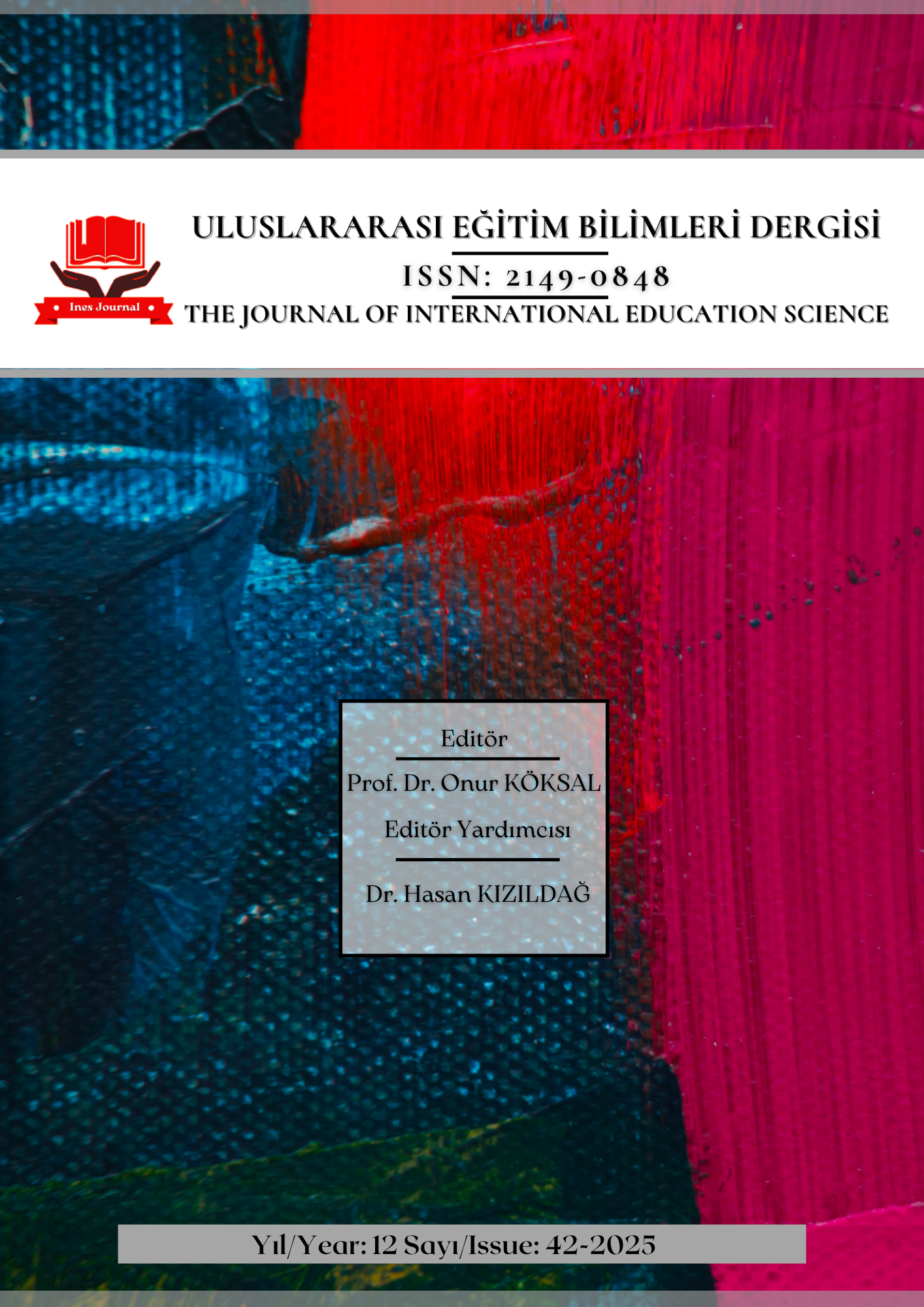Author :
Abstract
Bu araştırma, okul öncesi öğretmen adaylarının bilim ve bilim insanı kavramlarına ilişkin algılarını metaforlar aracılığıyla incelemeyi amaçlamaktadır. Bilim eğitiminin öneminin arttığı günümüzde, öğretmen adaylarının bu kavramlara yönelik anlayışlarının derinlemesine analiz edilmesi, gelecekteki eğitim pratikleri açısından kritik bir öneme sahiptir. Araştırmanın soruları, adayların "Bilim" ve "Bilim İnsanı" kavramlarına dair algılarını, bu kavramları nasıl resmettiklerini ve hangi metaforlarla ifade ettiklerini belirlemeye odaklanmaktadır. Nitel bir yaklaşım benimsenmiş ve olgubilimsel araştırma deseni kullanılmıştır. Veri toplama aracı olarak, yarı yapılandırılmış görüşme sorusu oluşturulmuş; katılımcıların demografik bilgileri, metaforik ifadeleri ile toplanmıştır. Bu yöntem, katılımcıların bireysel deneyimlerini ve algılarını derinlemesine anlamak için uygun bir zemin sunmaktadır. Araştırma, Çanakkale Onsekiz Mart Üniversitesi Eğitim Fakültesi Okul Öncesi Öğretmenliği 1., 2., 3. ve 4. sınıf düzeylerinden rastgele seçilen toplam 30 öğrenci ile gerçekleştirilmiştir. Okul öncesi öğretmen adayları, bilime ve bilim insanına dair zengin bir düşünsel altyapıya sahip olduklarını ve bilimsel süreçleri anlamaya başladıklarını göstermektedir. Okul öncesi öğretmen adayları, bilim insanını sadece bilgi üreten değil, aynı zamanda topluma katkı sağlayan ve sürekli gelişen bir figür olarak görmekte ve bu bakış açıları, öğretmenlik mesleklerinde çocuklara bilimsel düşünce kazandırma konusunda önemli ipuçları sunmaktadır. Okul öncesi öğretmen adaylarının geliştirdiği bilimsel metaforlar, bilimi ve bilim insanını farklı açılardan algıladıklarını ve bu algıların, bilim öğretimi açısından güçlü bir temel oluşturduğunu ortaya koymaktadır. Bu nedenle, öğretmen adaylarının bilimsel kavramlar hakkındaki algılarının güçlendirilmesi, etkili ve anlamlı bilim öğretimi için büyük önem taşımaktadır.
Keywords
Abstract
This research aims to examine preschool teacher candidates' perceptions of the concepts of science and scientist through metaphors. In an era where the importance of science education is increasing, analyzing teacher candidates' understanding of these concepts in depth holds critical significance for future educational practices. The research questions focus on determining how candidates perceive the concepts of "Science" and "Scientist," how they depict these concepts, and which metaphors they use to express them. A qualitative approach has been adopted, and a phenomenological research design has been used. The data collection tool involved a semi-structured interview questionnaire, gathering participants' demographic information and metaphorical expressions. This method provides a suitable foundation for deeply understanding the participants' individual experiences and perceptions. The research was conducted with a total of 30 randomly selected students from the 1st, 2nd, 3rd, and 4th-year levels of the Preschool Teacher Education program at Çanakkale Onsekiz Mart University Faculty of Education. Preschool teacher candidates demonstrate a rich conceptual foundation in science and scientists, and they are beginning to understand the multifaceted nature of scientific processes. These teacher candidates view scientists not only as knowledge creators but also as figures who contribute to society, inspire, and continuously develop. This perspective offers important insights into how they will foster scientific thinking in children in their future teaching careers. The scientific metaphors developed by the teacher candidates reveal that they perceive science and scientists from various angles, and these perceptions form a strong foundation for science teaching. Therefore, strengthening and deepening teacher candidates' understanding of scientific concepts is of great importance for effective and meaningful science education in the future.





